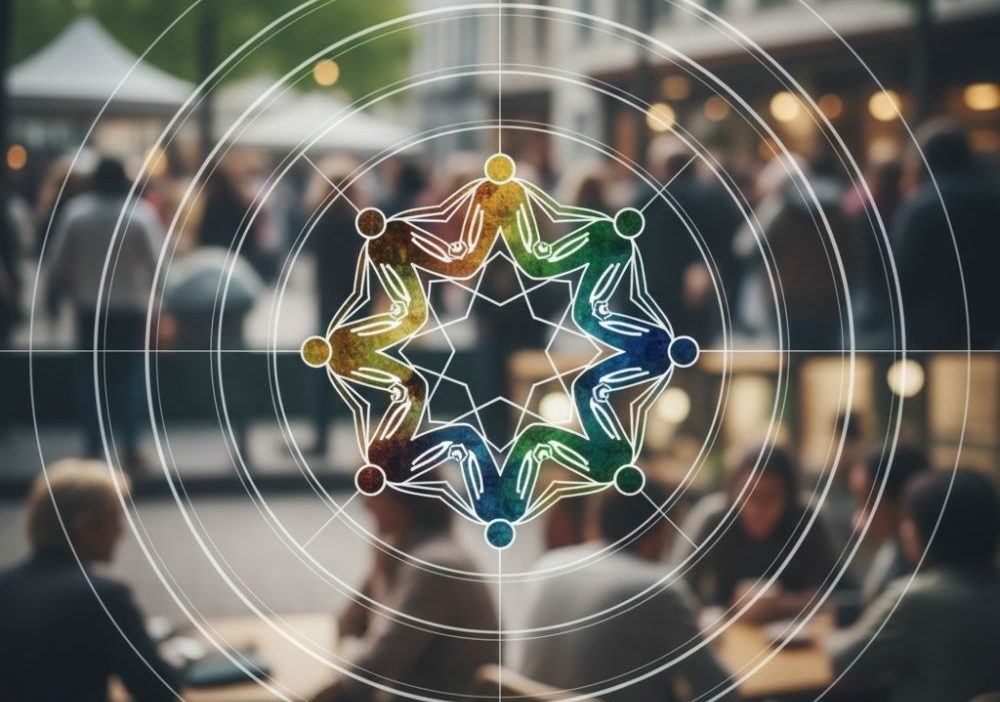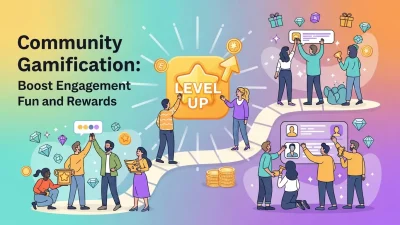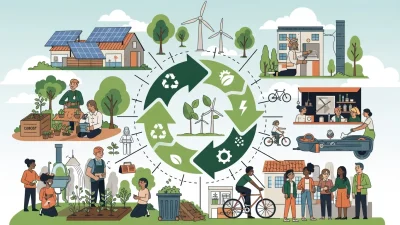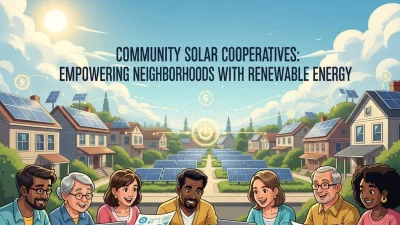Building a thriving community isn’t just about gathering people together—it’s about understanding what makes them want to stay. Community loyalty runs deeper than simple participation; it taps into fundamental human needs for connection, belonging, and shared purpose.
When members feel genuinely connected to a community, they don’t just show up occasionally. They become advocates, contributors, and the driving force behind sustainable growth. But what creates this powerful bond? The answer lies in psychology.
Research shows that successful communities leverage specific psychological principles that trigger long-term member engagement. These aren’t marketing tricks or growth hacks—they’re evidence-based strategies rooted in how humans naturally form and maintain social connections.
Understanding the psychology behind community loyalty gives you the blueprint for creating spaces where members don’t just participate, but truly invest themselves in the collective success of the group.
What Is Community Loyalty?
Community loyalty represents the emotional and behavioral commitment members develop toward their group. It’s the difference between someone who occasionally drops by and someone who actively shapes the community’s direction.
Loyal community members exhibit several key behaviors. They participate consistently in discussions, events, and activities. They refer new members organically because they genuinely believe in the value of the community. When challenges arise, they work toward solutions rather than simply leaving.
This loyalty manifests differently across community types. In professional networks, loyal members might mentor newcomers or share industry insights. In hobby communities, they could organize events or create detailed guides for beginners. The specific actions vary, but the underlying commitment remains constant.
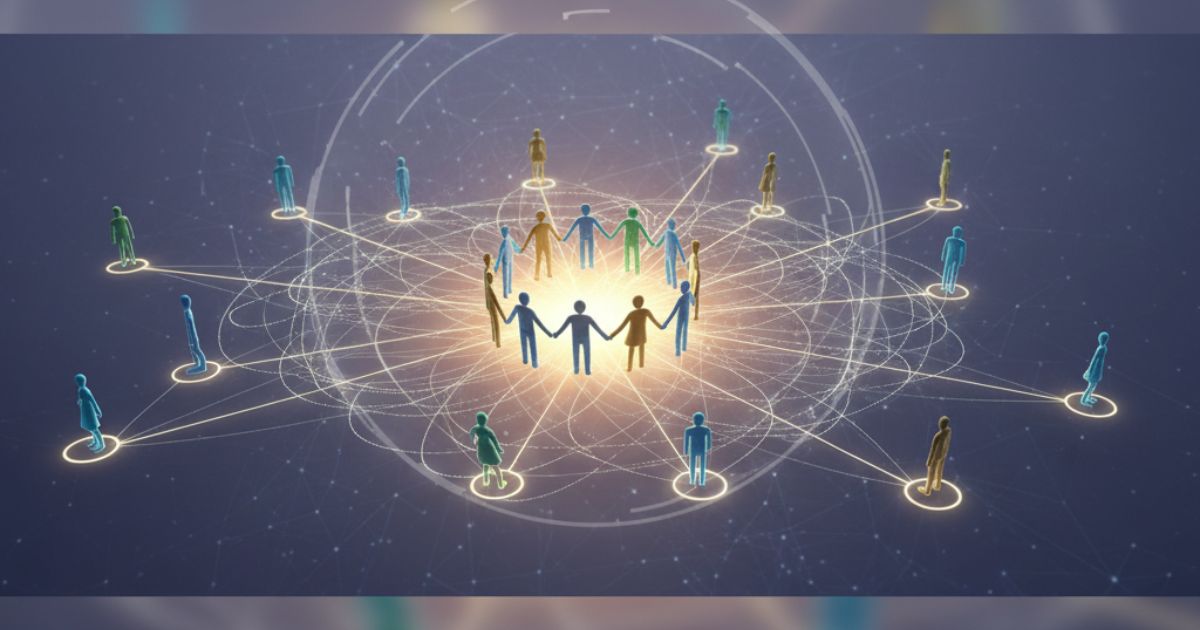
Member engagement serves as the foundation for community loyalty, but it’s not the same thing. Engagement can be temporary—driven by curiosity, trending topics, or short-term incentives. Loyalty develops over time through repeated positive experiences and deepening relationships.
The most successful communities understand that loyalty can’t be forced or bought. It emerges naturally when the right psychological conditions are met, creating an environment where members feel valued, heard, and essential to the community’s mission.
What Is the Psychology Behind Loyalty?
Human loyalty stems from evolutionary psychology and our fundamental need for social connection. Throughout history, belonging to a group has meant survival, safety, and access to shared resources. These deep-rooted instincts still influence how we form attachments to communities today.
Social identity theory explains how people derive part of their self-concept from group membership. When someone identifies strongly with a community, criticism of that group feels like personal criticism. This psychological investment creates a protective instinct that strengthens loyalty bonds.
Trust plays a crucial role in loyalty formation. Members need to trust that the community will deliver consistent value, that fellow members will treat them with respect, and that their contributions will be valued and appreciated. This trust builds through repeated positive interactions and transparent communication from community leaders.
Reciprocity also drives loyalty. When members receive help, advice, or support from the community, they feel obligated to give back. This creates a positive cycle where contribution leads to recognition, which motivates further contribution.
The concept of psychological ownership makes communities feel personally meaningful to members. When people influence community decisions, shape its culture, or see their ideas implemented, they develop a sense of ownership that transcends simple participation.
Finally, the fear of missing out (FOMO) and sunk cost fallacy contribute to loyalty. Members who have invested time, energy, or reputation in a community become reluctant to leave, even during challenging periods. They’ve built relationships and achieved status that would be difficult to replicate elsewhere.
What Is Community Psychology?

Community psychology focuses on understanding how individuals interact within their social environments and how these interactions affect both personal well-being and group dynamics. Unlike traditional psychology, which often examines individuals in isolation, community psychology recognizes that human behavior is deeply influenced by social context.
This field emerged in the 1960s as psychologists recognized the limitations of purely individual-focused approaches to mental health and behavior change. Community psychology emphasizes the importance of prevention, empowerment, and social connections in promoting psychological well-being.
In the context of community loyalty, this discipline provides valuable insights into why some groups thrive while others struggle. It examines how shared values, mutual support, and collective efficacy create environments where members feel psychologically safe and motivated to contribute.
Community psychology also addresses the role of diversity and inclusion in group dynamics. Research shows that communities with diverse perspectives often generate more innovative solutions and create richer experiences for members, but only when that diversity is actively welcomed and integrated.
The field recognizes that healthy communities serve multiple psychological functions. They provide social support during difficult times, offer opportunities for personal growth and skill development, and create spaces where members can express their authentic selves without fear of judgment.
Understanding community psychology helps leaders design experiences that meet members’ psychological needs while advancing the group’s collective goals. This knowledge transforms community building from guesswork into a more scientific approach based on proven psychological principles.
What Are the Four Elements of Community Psychology?

Community psychology operates on four core elements that directly impact member engagement and loyalty: sense of community, empowerment, prevention, and cultural competence.
Sense of Community
A sense of community encompasses the feeling of belonging, mutual influence, shared values, and emotional connection among members. This psychological bond makes individuals feel they’re part of something larger than themselves.
Members with a strong sense of community actively participate because they feel their contributions matter. They develop relationships that extend beyond surface-level interactions, creating deeper emotional investments in the group’s success.
Building this sense requires intentional design of shared experiences, clear communication of community values, and systems that help members recognize their impact on others. When people see how their participation creates positive outcomes for fellow members, their sense of community strengthens.
Empowerment
Empowerment involves giving members genuine influence over community decisions and outcomes. This goes beyond token consultation—it means creating meaningful opportunities for members to shape the community’s direction.
Empowered members take ownership of community challenges and solutions. They feel responsible for the group’s well-being because they have real agency in determining its future. This psychological ownership is one of the strongest drivers of long-term loyalty.
Effective empowerment strategies include member-led initiatives, democratic decision-making processes, and opportunities for leadership development. When members see pathways to increased influence and responsibility, they invest more deeply in the community’s success.
Prevention
Prevention focuses on addressing potential problems before they become serious issues that drive members away. This includes conflict resolution, maintaining community standards, and protecting the psychological safety of all members.
Preventive approaches create stable, predictable environments where members can focus on positive contributions rather than navigating drama or uncertainty. This stability is essential for building trust and encouraging vulnerable sharing that deepens relationships.
Communities that excel at prevention have clear guidelines, consistent enforcement, and proactive support systems for members facing challenges. They address toxic behavior quickly and provide resources to help members succeed within the community framework.
Cultural Competence
Cultural competence involves understanding and respecting the diverse backgrounds, perspectives, and experiences that community members bring. This element acknowledges that one-size-fits-all approaches often exclude important voices and limit the community’s potential.
Culturally competent communities create space for different communication styles, cultural traditions, and ways of participating. They actively work to identify and remove barriers that might prevent certain groups from fully engaging.
This competence extends beyond demographics to include professional backgrounds, experience levels, personality types, and other dimensions of diversity. Communities that successfully integrate different perspectives create richer experiences that appeal to a broader range of potential loyal members.
Building Lasting Connections Through Psychological Understanding
The psychology of community loyalty reveals that sustainable member engagement isn’t about constant entertainment or incentives. Instead, it’s about creating conditions where people’s fundamental psychological needs are met through community participation.
Successful communities effectively combine all four elements of community psychology to create environments where loyalty naturally develops. They foster genuine connections between members, provide meaningful opportunities for influence and contribution, maintain safe and inclusive spaces, and respect the diverse perspectives that make communities vibrant.
The most important insight from community psychology is that loyalty emerges from authenticity. Members can sense when community leaders genuinely care about their well-being versus when they’re simply trying to boost engagement metrics. This authenticity, combined with consistent application of psychological principles, creates the foundation for communities that members treasure and protect.
Understanding these psychological dynamics transforms community building from an art into a science, giving leaders the tools they need to create spaces where people don’t just participate—they belong.
Frequently Asked Questions
How long does it take to build community loyalty?
Community loyalty typically develops over 3-6 months of consistent positive interactions. However, the timeline varies based on community size, member investment level, and how well the community meets psychological needs for belonging and empowerment.
What’s the difference between community engagement and loyalty?
Engagement refers to participation levels and activity metrics, while loyalty represents emotional commitment and long-term dedication. Members can be highly engaged in the short term but lack loyalty, or they might participate less frequently but remain deeply committed to the community’s success.
Can community loyalty be measured?
Yes, through both behavioral indicators (retention rates, referrals, volunteer participation) and psychological measures (sense of belonging surveys, net promoter scores, qualitative feedback about community value). The most accurate assessment combines multiple measurement approaches.
What causes members to lose loyalty to a community?
Loyalty typically erodes due to broken trust, feeling unheard or undervalued, conflicts with community values, lack of meaningful connection with other members, or changes that make members feel the community no longer serves their needs.
How can small communities compete with larger ones for member loyalty and engagement?
Small communities often have advantages in building loyalty because they can offer more personalized attention, foster closer relationships among their members, and provide greater individual influence over the community’s direction. Focus on intimacy, recognition, and meaningful participation opportunities rather than trying to match the scale of larger communities.


